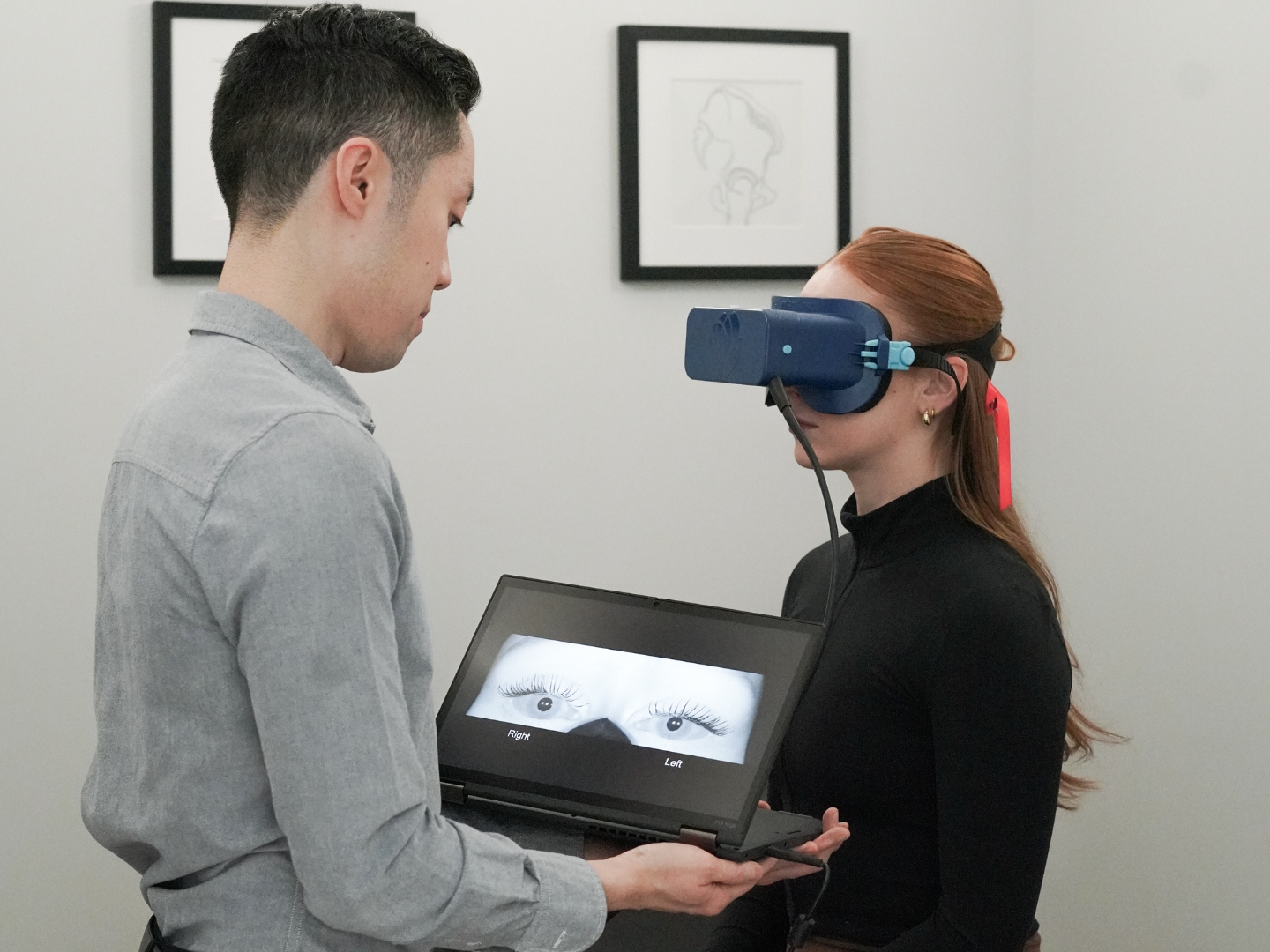Vestibular Rehabilitation

What is Vestibular Rehabilitation?
Vestibular Therapy is a highly specialized form of physiotherapy that focuses on diagnosing and treating disorders related to the vestibular system—the inner ear and its connections to the brain. This therapy is particularly effective in managing conditions such as vertigo, imbalance, and dizziness. At Focus, we use advanced infrared video goggles to see a close-up image of your eye, leading to more efficient and accurate diagnosis. From there, we use a combination of corrective exercises and hands-on techniques to address issues with the inner ear and vestibular system.
Key Benefits
Dizziness Management
Vestibular Therapy is instrumental in managing and often alleviating dizziness and vertigo, helping you regain your balance and stability.
Improved Quality of Life
By addressing issues related to the vestibular system, this therapy enhances your overall quality of life, reducing the impact of dizziness on your daily activities.
Fall Prevention
Vestibular Therapy can significantly reduce the risk of falls, especially in older adults, by improving balance and coordination.
Customized Rehabilitation
Our expert physiotherapists will assess your specific condition and design a tailored treatment plan to meet your unique needs.
Enhanced Mobility
Vestibular therapy not only helps with dizziness but can also enhance your mobility and confidence in performing daily tasks.
Non-Invasive Approach
Vestibular Therapy is a non-invasive treatment option, avoiding the need for surgical interventions or medications.
Will I vomit from vestibular treatment?
While vestibular therapy aims to alleviate dizziness, some patients may experience a temporary increase in symptoms during or after a therapy session. This may include a sensation of nausea or queasiness. Why does this happen? Habituation: Some exercises involve controlled movements that may initially provoke dizziness.
The goal is to expose your vestibular system to these movements, helping it adapt and become less sensitive over time. Repositioning maneuvers: Certain maneuvers, such as the Epley or Brandt-Daroff exercises for benign paroxysmal positional vertigo (BPPV), can cause brief, intense sensations of dizziness as they work to reposition inner ear crystals.
At Focus, our physiotherapists are highly trained in vestibular therapy and will carefully select exercises and maneuvers based on your individual condition and tolerance levels. We will monitor your progress and adjust the treatment plan as needed to minimize any discomfort.
Communication is Key
Open communication with your therapist is essential. If you experience significant discomfort or feel nauseous during a session, it’s important to let them know immediately. They can make adjustments or recommend strategies to help manage any nausea.
Temporary Side Effect
It’s important to remember that any feelings of nausea or vomiting associated with vestibular therapy are usually temporary and part of the adaptation process. As your vestibular system improves, these sensations typically decrease over time.
Our Treatments
These are just some of the many conditions we treat. If you are experiencing any discomfort, pain, or have a condition not listed here, please do not hesitate to reach out to us. We are committed to guiding you on your path to recovery.
QUICK LINKS
THE CLINIC
West Point Centre South
14, 9977 178 St NW
Edmonton, AB T5T 6J6
Clinic Hours
Mon - Fri: 9 am - 7 pm
Sat: 9 am - 4 pm
Sun: Closed
STAY CONNECTED
© 2025 Focus Physiotherapy. All Rights Reserved. Privacy Policy | Website designed by Adelina Creative.

